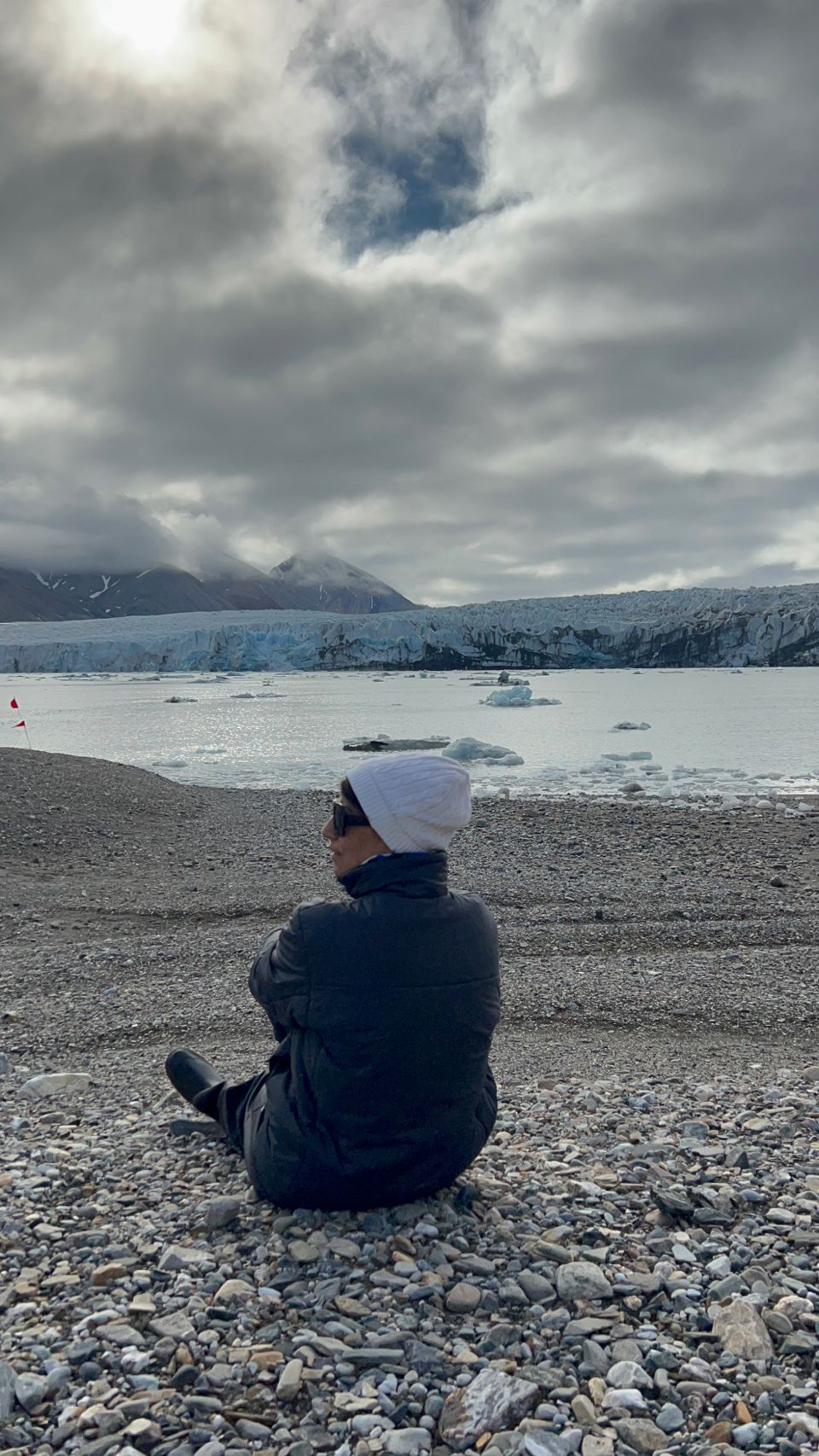
28
Aug 2023
Management Lessons from a ‘Cruise to Arctic Circle’
Dr. Swati Lodha |
Management
Recently, I took a cruise to the Arctic circle, the northern most part of the globe. This
made me realize how travel to an unmanned territory can offer valuable management
lessons applicable to various aspects of business and leadership. Here are some
management lessons learnt from my expedition:
-
Preparation and Planning are Crucial: Our planning to travel to Arctic began
six months ago when we booked ourselves with the cruise company. Since
meticulous planning was required to navigate this challenging environment, we
were given details about the winter gear required in the Arctic summer. We
ordered the water-resistant trousers, shoes, caps, gloves, in time while the cruise
provided us with the specially made parkas.
-
Risk Management: Arctic cruises involve dealing with unpredictable weather,
icebergs, glaciers, and other hazards. Similarly, in the business world, managers
must identify and mitigate risks to ensure the organization's stability and
growth. We had a briefing every evening in the cruise for the next day plan which
included a contingency plan crucial for handling unexpected events.
-
Adaptability and Flexibility: Arctic conditions can change rapidly, necessitating
quick adjustments to the itinerary. Two of our expeditions got cancelled due to
windy weather, but they took us to the ‘Ice Edge’ instead. It required getting up
early at 6am and watch the frozen sea from the deck. Similarly, managers are
required to be adaptable and open to changing strategies based on evolving
circumstances, whether due to market shifts or internal changes.
-
Team Collaboration: The success of an Arctic cruise depends on the
collaboration of a diverse crew with different skill sets. During our cruise, I
witnessed a seamless execution of all planned activities by teams like expedition,
hospitality, logistics, research, and history. Similarly in business, fostering
teamwork and encouraging collaboration among employees can lead to
improved problem-solving, creativity, and overall productivity.
-
Effective Communication: Clear communication was vital on this Arctic cruise
to ensure everyone's safety and to keep passengers informed. There were
continuous announcements in the common areas throughout the day while the
Suites and Rooms received special communications whenever there was a
sighting of dolphins or polar bears. The members of various teams met the
guests with utmost respect and answered all their queries with patience. It made
me realize how managers must also prioritize effective communication within
their teams, providing clear instructions, expectations, and feedback to avoid
misunderstandings.
- Resource Management: Limited resources on an Arctic expedition, such as fuel
and supplies, require efficient allocation. We witnessed how water and food
items were used judiciously on this journey. Similarly, in business, optimizing
resource allocation and minimizing waste can enhance operational efficiency and
cost-effectiveness.
-
Leadership under Pressure: Arctic conditions are challenging and stressful.
Still I saw the captain, managers, and attendants demonstrating resilience,
composure, and strong decision-making skills under pressure. In business,
effective leaders must guide their teams through tough situations with
confidence.
-
Environmental Responsibility: The fragile Arctic ecosystem emphasizes the
importance of environmental responsibility. We were made aware of the scarce
vegetation and valuable fossils on the landmass. So, we took utmost care while
walking on land during our expeditions. Businesses should also consider their
ecological impact and work towards sustainable practices that benefit both the
company and the environment.
-
Continuous Learning and Adaptation: Arctic cruises involve exposure to new
environments and experiences. I got to participate in a ‘Citizen Science Project’
where we collected data from the mouth of glacier about the changes happening
in it. Similarly, managers should embrace a culture of continuous learning,
seeking opportunities to grow, adapt, and improve their skills to stay ahead in a
dynamic business landscape.
-
Customer Experience: The reception area in the ship had a big desk titled
‘Future Cruise Sales’ and their pleasing sales person shared about booking 50%
of future sales while being on board. Many of the fellow passengers were cruising
with them for the third or the fourth time. Since this cruise offered its passengers
a memorable and enjoyable experience, it was loved by all of us. Businesses
should focus on providing excellent customer experiences to build loyalty,
reputation, and repeat business.
Ultimately, a cruise to the Arctic offers a unique opportunity to learn from the
challenges and triumphs faced in a remote and demanding environment. Translating
these lessons into effective management strategies can lead to improved leadership,
better decision-making, and overall business success. Not only this, it was a life-time
experience of venturing into unchartered territories and making new friends from
different age groups and nationalities.
 Leave a reply
Leave a reply
 Reviews (0)
Reviews (0)
 Reviews (0)
Reviews (0)




 Leave a reply
Leave a reply
 Reviews (0)
Reviews (0)
 Reviews (0)
Reviews (0)